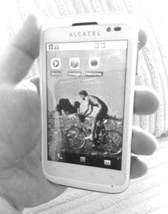What is it that suddenly, after a very long time, triggers a breakthrough towards our wellness?
When Fred looked at the circle sketched on the paper, he had a revelation.
His coach had guided him through an exercise called the wheel of life, a dispassionate assessment of the various dimensions of his life, including his career, health, friends, family, love, and spiritual growth. Fred had always had a keen interest in learning and developing himself, and curiosity about other people and cultures. At the end of university, he took a job abroad to pursue an international management career that would provide him with opportunities to explore more of the world. Talented and determined, he was soon promoted to management and his career flourished.
But something was wrong. As sometimes happens to the ambitious achievers, his laser focus on his career caused him to pay in other parts of his life. Reflecting on the wheel of his life, the young manager realised that two imbalances required his attention: health and personal growth.
‘Work hard and play hard’ was his mantra at that time. Working hard, he thought, meant skipping lunch and grazing snacks and junk food, smoking throughout the day, and having a heavy and unbalanced dinner that often included pizza and lots of sweets. After dinner, playing hard meant parties and alcohol. He did not think much about the future consequences that this lifestyle might provoke. The other imbalance in his life was that he seemed to be trapped in a pessimistic and critical mindset, and this had been affecting how he approached both his work and wellbeing.
The exercise with his coach brought him to a higher level of awareness, as he had a clear realisation of his need to change, both physically and spiritually. He had started knowing better, being more aware, and so he decided he needed a change. Or did he?
Fred had a hunch that starting with his physical wellbeing was a smart move. However, for one year after the exercise with his coach, he did not take any concrete action. Fred simply did not know what to do. He was rationally contemplating a decisive change. On the other hand, he was telling himself that he needed to focus his efforts on turning his critical and negative mindset into a positive one, so his physical health could wait, in a sense.
In fact, Fred’s journey towards wellbeing and personal development unfolded over years, and in some important ways, it is still in progress today. He did not change all at once. It took many steps. Contemplating a change was an important new beginning for Fred, but he needed to move from knowing to doing.
Although he had a hunch that becoming physically active could be his first move, it was like he did not really know what to do. His rational mind, the strategic planner in him, had pointed to a necessary, logical change one year earlier.
But it was only when his emotions and feelings charged him that he could finally get to action.
We read various stories, books, and blog posts from people who transformed themselves, their bodies, and their lives. Often, these stories share similarities, starting with a defining moment when something deep inside clicked and everything changed.
These potentially life-changing moments occur when we finally focus our attention on tackling our wellness, take the necessary actions, sustain them, and stay focused until those actions become routines and habits that can last for a lifetime.
Make no mistake here. For many people (I am one of them), there are moments of truth that can provoke vigorously positive reactions, albeit often temporary ones. ‘That’s it. No more.’
What is it that suddenly, after a very long time, triggers a breakthrough?
We might have avoided looking in the mirror for months, but then comes the moment we must buy new clothes one or two sizes bigger than usual, and something clicks, waking us up in shock. How did that happen?
A strong reason ‘why’ is the first, and most important, breakthrough we need. There are certain moments of truth that can provoke a vigorous reaction, a genuine and strong intention to change. This provides a strong reason ‘why’, which is emotionally charged.
Being angry with someone can also trigger change, as it can be a form of revenge or pride: ‘I’ll show you!’ For example, it is not uncommon for people with obesity to be victims of social stigma, jokes, and discrimination. Even when others have perfectly good intentions, sometimes they can be very offensive, making insensitive observations about our body shape. We might get so upset and angry we really want to show them, and teach them a lesson.
Fear can also be a strong motivator to change. Some people get scared when the doctor’s diagnosis is something serious and they are forced to correct their lifestyle and take medicine. Maybe a friend of theirs gets ill, or worse. The fear decreases at some point, and they hope that they can address the cause of fear. At that point, adherence to a new diet derails, and things go back to where they were before.
Love, on the other hand, is probably the most powerful motivator for change. Either love for someone else (‘I’ll sacrifice for him’) or love for yourself (‘I deserve better, I’ll take my life back’).
The advice to love yourself is always nice, but it does not make it any easier. Shifting the focus outside yourself, to loving others, could work better, and in the process, you learn to love yourself more, because you learn that you are a great human being capable of love.
Asking yourself why you want to get healthier helps you identify both the rational and emotional reasons; both head and heart are important. The rational mind wants to know the facts and the logic behind why you need to engage in change, and how it will know when you get there. But your emotional mind must sustain your new journey. Your emotions and feelings about why you want to put effort into making changes are crucial. Unless you find a reason that is emotionally charged, it won’t sustain you for long.
In my case, I had many reasons why I wanted to get healthier. These included being able to wear jeans again, seeing a seven when I jumped on the scale, stopping snoring, and avoiding developing diabetes. I could barely walk for more than a few minutes without my back hurting and blocking me. I could not take to the stairs without panting. I was conscious of my body.
And of course, I was full of love for my daughter and my wife.
Did those triggers provide me with strong leverage to motivate myself and tackle my weight? Yes indeed. However, they often motivated me only temporarily.
It was only when I listened to the strong feeling of not having the energy to play with my kid, and therefore not being a good father, that I found the motivation to sustain a dramatic, long-lasting change.
Whatever you are doing, briefly focusing on why you are doing it is crucial to keep you on track and to keep distractions away.
Even if you have discovered your reason why, your motivator, you must continue asking yourself this question for life. On the one hand, your reasons why might change over time. On the other, it is surprising how easy is for us to forget our big reasons why. Life is complex. You have to constantly juggle multiple concerns, goals, projects, and unexpected events.
You start to focus on one dimension of your life, and some other areas start to lack. Focus exclusively on your career, and your health or relationships might suffer, not to mention the distractions and problems that the world and life in general constantly throw at us.
To remind myself to focus on my wellbeing, I found one single picture that represents all my feelings of energy and action.

It is a photo of me at the age of twenty-five. It is summer, and I am on top of a mountain near my village in Italy. I am riding my first mountain bike and I am surrounded by free horses. I feel fit, powerful, and free. I feel alive. Five years ago, I set this photo as my phone wallpaper, so I look at it every single day.
This is the power of ‘why’.
From: Camillo Pandolfi (2017) My Motivactions – Available on amazon.com
* Photo by freestocks.org from Pexels


